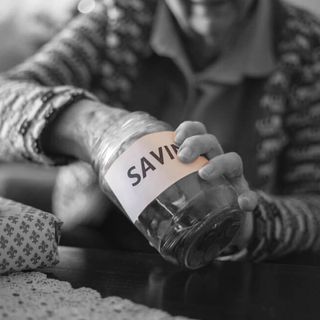
Carpe Diem Does Not Mean ‘Seize the Day’
The fact that the Latin phrase has been so misinterpreted tells us a lot about modern culture.

When I was 9 years old, my Class IV teacher taught us that the Latin phrase carpe diem, a phrase first found in the Roman poet Horace’s Odes, meant “seize the day.” It would go on to becomea sort of mantra throughout my primary and secondary school education, repeated by successive faculty as a way to teach students to live life to the fullest, in the most self-reliant, creative way possible. I carpe diem-ed my way through procrastinated assignments, adolescent relationships, and irresponsible decisions. Later, through internships, college theses and job applications.
Now, fourteen years later, I’ve learned my life is a lie: carpe diem does not translate to “seize the day;” carpe diem translates to “pluck the day,” points out Chi Luu, a computational linguist and neuro-linguistic programming researcher, in an article for the scholarly publication JSTOR Daily. Luu likens the true translation to the Robert Herrick poem that starts “Gather ye rose-buds while ye may,” a much gentler way of saying make the most of your time.
It may seem like splitting hairs, but it’s an important nuance. “Seize the day” as a translation, Luu argues, tells us much more about the society in which the phrase came of age than it does about the society of a dead language.
Carpe diem gained fame from the movie Dead Poet’s Society, which stars Robin Williams as an inspiring English teacher at an all-boys prep school. “Carpe diem. Seize the day, boys. Make your lives extraordinary,” Luu quotes Williams’ character whose purpose in the film is to challenge his students to see the world differently.
The movie came out in the late 1980s. Fast forward 30 years and the movie’s core audience are now adults — millennials struggling with burnout, with work-life balance, with not being able to ‘turn off.’ The link doesn’t feel accidental.
Luu cites the work of Australian philosopher Roman Krznaric, author of Carpe Diem Regained, who “is concerned that the philosophy has come to mean something else, almost the antithesis of what Horace’s words actually meant.”
Related on The Swaddle:
Why Cancelling Plans Gives Us Such a Rush
“‘Seizing’ the day brings up images of people taking what they can get, people who can get things done — active, self-reliant individuals who are agents in pursuit of their own happiness, reflected in the #YOLO-infused, instant-gratification-obsessed consumer culture that exhorts us to ‘Just Do It’ by buying products. Even life experiences have become commodities, in a world where people can no longer afford to buy a place to live,” Luu writes. “We’re encouraged instead to buy into precarious economic lifestyles celebrated by ad campaigns like freelance startup Fiverr’s ‘You eat a coffee for lunch … Sleep deprivation is your drug of choice. You might be a doer.’ This is the ‘carpe diem’ aesthetic of a modern world of aggressive action, not all that different from the ‘work till you drop’ mentality of industrialism.”
This strikes a chord with a generation for whom even self-care has become something to seize and make the most of. Rather than stopping to smell the roses, or truly enjoying the moment — English idioms that, perhaps, echo the true meaning of carpe diem more closely than the familiar mistranslation — we hit the ground running to make the most of every minute. It may seem like a stretch to credit a generational ethos to a handful of lines in a dated movie, but, as Luu argues, metaphors define and reflect our perceptions of the world: “We frame concepts like arguments as a war to be won (‘He attacked every weak point in my argument,’ ‘His criticisms were right on target’), time as a commodity (‘I don’t have enough time to spare for that,’ ‘ Is that worth your while?’) …. We do this a lot, we think of abstract things as objects, containers, resources that can be taken, used up and thrown away, and we act like common interactions are fights, battles, wars and other aggressive acts where we need to attack and defend ourselves from an enemy.”
What if we … didn’t? What if we see the world differently yet again? It’s a heady, risky thought for a millennial, one that’s almost as subversive as Williams’ original cinematic exhortation. ‘Plucking’ the day may not have the same ring as ‘seizing’ the day — but maybe it’s time for a new mantra.
Liesl Goecker is The Swaddle's managing editor.
Related


Women Earn Less, So They Have Less Money to Last Through Their Retirement
